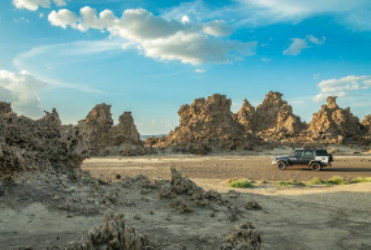Most travelers as well as executives are familiar with Djibouti, a small but highly significant nation in the Horn of Africa. Despite its pivotal geographic location and unique natural attractions, many people aren’t aware of what this fascinating nation offers. The lack of mainstream promotion surpassed by neighbouring countries and misconceptions about safety contribute to Djibouti’s underwhelming visibility on the global stage.
But here’s the thing: overlooking Djibouti means missing out on an untapped treasure trove of experiences opportunities, and insights.
Solution: Unveiling Djibouti’s Potential
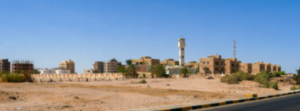
Djibouti is more than just a speck on the map. From its strategic role in global trade to its natural wonders and rich cultural fabric. Djibouti is ripe for exploration. Whether you’re a traveller seeking a unique adventure a businessperson eyeing opportunities in logistics or an environmental enthusiast curious about ecosystems, Djibouti has something for everyone.
In this blog, we’ll unpack what makes Djibouti special using a factual, case-study-based approach. Let’s dive in and explore why Djibouti deserves your attention.
Amplification: Why Djibouti Is Worth Your Time and Investment
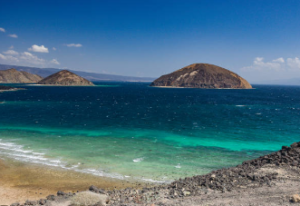
1. A Strategic Crossroads of the World
Djibouti’s location at the junction of the Red Sea and the Gulf of Aden is not just a geographical detail—it’s a cornerstone of its global importance. Sitting next to one of the world’s busiest shipping lanes. Djibouti acts as a gateway to East Africa and a crucial hub for maritime trade.
Case Study: Djibouti Port—The Backbone of Regional Trade
The Port of Djibouti is a lifeline for landlocked Ethiopia. Which relies on it for over 90% of its imports and exports. Managed by international operators the port has transformed Djibouti into a logistics powerhouse. The port handled more than 10 million tons of cargo in 2021 alone. Moreover, the newly built Djibouti Free Trade Zone the largest of its kind in Africa, is set to further enhance its role as a regional trade hub.
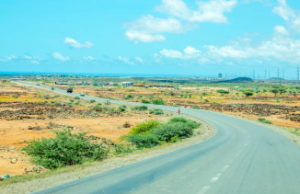
What does this mean for businesses? Djibouti offers unparalleled access to African and Middle Eastern markets, making it an ideal base for companies involved in logistics shipping and trade.
2. Nature’s Masterpiece: Unique Landscapes and Ecosystems
Djibouti’s landscapes defy expectations. Its terrain is a mix of arid desert salt flats volcanic formations and pristine coastlines. The third-saltiest body of water in the world Lake Assal is one of the more notable features.
Case Study: Lake Assal—A Natural Wonder
Located 155 meters below sea level Lake Assal is both a geological marvel and an economic resource. Its hyper-salinity supports salt mining a key industry in Djibouti. In recent years, sustainable salt extraction projects have been initiated to ensure the lake’s preservation while supporting local livelihoods.
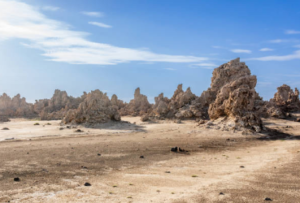
For travellers Lake Assal offers a surreal experience. Imagine standing on the edge of a shimmering salt flat, surrounded by volcanic peaks—a scene straight out of a science fiction novel.
3. Marine Biodiversity: A Diver’s Paradise
For those who enjoy diving Djibouti’s aquatic setting is a hidden treasure. The waters around the Gulf of Tadjoura and the Seven Brothers Islands are teeming with marine life including whale sharks dolphins and vibrant coral reefs.
Case Study: Whale Shark Tourism
Whale sharks, the gentle giants of the ocean, make Djibouti’s seas their home from November to February. Eco-tourism initiatives have been established to promote responsible whale-shark interactions, attracting divers and researchers from around the world. This promotes awareness of marine conservation while also strengthening the local economy.
4. Cultural Tapestry: A Blend of Traditions
The culture of Djibouti is a complex fusion of French. Arab, Afar, and Somali elements. Its capital, Djibouti City showcases this diversity through its architecture, cuisine and festivals.
Case Study: Djibouti’s Traditional Markets
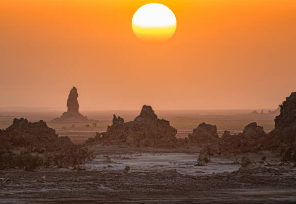
Visiting the Central Market in Djibouti City is like stepping into a cultural kaleidoscope. From aromatic spices to handwoven textiles the market offers a glimpse into the daily lives of Djiboutians. These markets also serve as platforms for local artisans empowering them economically and preserving traditional crafts.
5. Infrastructure and Connectivity: Pioneering Projects
Despite its small size Djibouti is making big strides in infrastructure development. The Ethiopia-Djibouti Railway a modern electric rail line, is a game-changer for regional connectivity.
Case Study: Ethiopia-Djibouti Railway
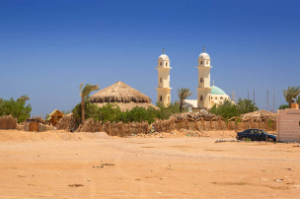
Opened in 2018, this 750-kilometer railway connects Addis Ababa to the Port of Djibouti reducing transport time for goods from days to hours. This project has boosted trade efficiency and strengthened economic ties between the two countries setting a benchmark for infrastructure development in Africa.
6. A Gateway to Renewable Energy:
By 2035, Djibouti plans to run entirely on renewable energy. With abundant geothermal solar and wind resources the country is making significant investments in green energy projects.
Case Study: Geothermal Energy Development
The Lake Assal geothermal project is a flagship initiative aimed at harnessing Djibouti’s geothermal potential. Once operational it will provide a stable clean energy source for the nation reducing reliance on imported fossil fuels.
7. A Safe and Stable Environment:
While the Horn of Africa is often associated with conflict. Djibouti has managed to maintain political stability and safety. It hosts several foreign military bases including those of the United States. France and China which underscores its strategic importance and relative security.
Why You Should Visit or Invest in Djibouti
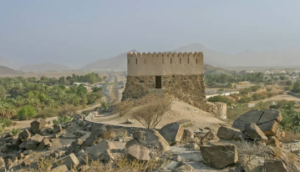
Djibouti’s unique combination of natural beauty, strategic location, and developmental strides make it a land of opportunities. Whether you’re planning your next travel adventure or exploring business prospects, here are some key takeaways:
- For Travelers: Djibouti offers untouched natural wonders rich marine biodiversity and authentic cultural experiences.
- For Businesses: Its strategic location and growing infrastructure make it a prime spot for investment in logistics renewable energy and eco-tourism.
- For Environmentalists: Djibouti’s commitment to sustainable development provides a blueprint for balancing growth with conservation.
Conclusion: Don’t Sleep in Djibouti
Djibouti is no longer just a pit stop for cargo ships or a footnote in geopolitics. It’s a destination and investment hotspot with the potential to shine brightly on the global stage. By exploring and investing in Djibouti you’re not just discovering a country you’re tapping into a wellspring of untold stories, untamed landscapes and unbounded opportunities.
So, what’s holding you back? Whether it’s planning your next trip or strategizing your business expansion. let Djibouti be the answer to your quest for something truly extraordinary.
